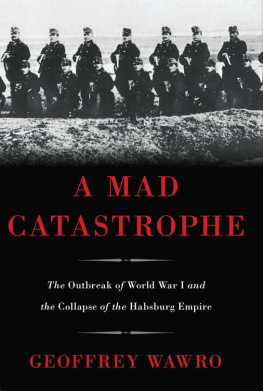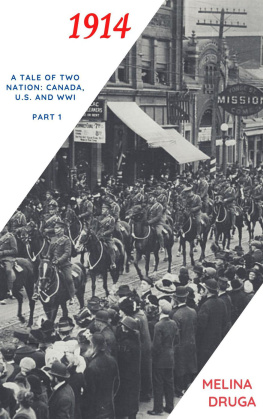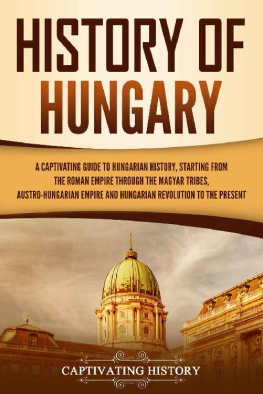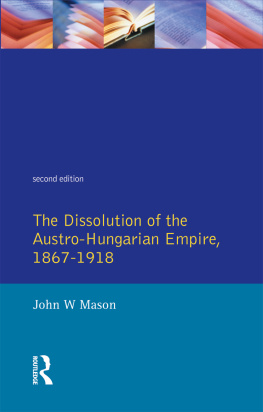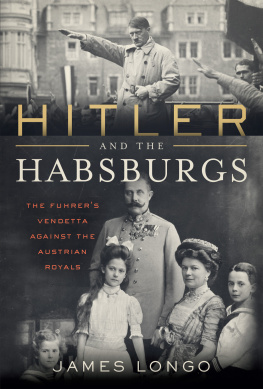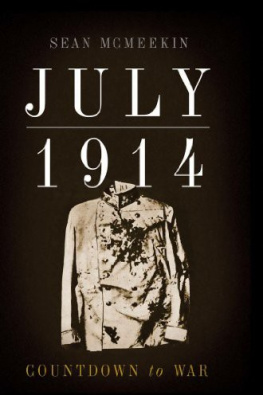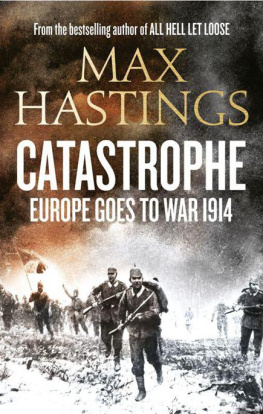More Advance Praise for A Mad Catastrophe
A distinctly unique and long overdue contribution to the historiography of early World War I. The aficionados of Barbara Tuchmans Guns of August and Istvan Szabos film Colonel Redl will find this a marvelous, engrossing, and distinctly well-written read that gives necessary balance to the already well-covered narrative of World War Is Western Front. Understanding the challenges and ultimate fate of the creaky, polyglot, decrepit yet also curiously progressive Austrian-Hungarian Empire is essential for comprehending the furies that erupted and boiled over the subsequent century within the vast, complicated, multi-ethnic expanse it spanned. Master historian Geoffrey Wawro does a tour de force job in colorfully bringing this to light.
Brigadier General Peter Zwack, US Army
Geoffrey Wawro has done a superb job in explaining and describing how the Habsburg Empire, in trying to save itself, provoked a great war and then destroyed its army through a combination of incompetence and pretentiousness.
Norman Stone, author of World War One: A Short History
Geoffrey Wawro has produced a gripping and highly recommended account of Austria-Hungarys descent into the carnage of the First World Wars first year. Unprepared but self-confident, divided by nationality, religion, and interest, the Habsburg armies got an unexpected thrashing that anticipated the demise of the rickety monarchy. This is a very instructive primer on imperial overreach, political irresponsibility, and the dreadful cost in human lives that was the epitaph for old Central Europe.
Ivo Banac, Bradford Durfee Emeritus Professor of History, Yale University
A Mad Catastrophe
Also by Geoffrey Wawro:
The Austro-Prussian War: Austrias War with Prussia and Italy in 1866
Warfare and Society in Europe, 17921914
The Franco-Prussian War: The German Conquest of France in 187071
Quicksand: Americas Pursuit of Power in the Middle East
A Mad
Catastrophe
The Outbreak of World War I and the Collapse of the Habsburg Empire
Geoffrey Wawro

A Member of the Perseus Books Group
New York
Copyright 2014 by Geoffrey Wawro
Published by Basic Books,
A Member of the Perseus Books Group
All rights reserved. Printed in the United States of America. No part of this book may be reproduced in any manner whatsoever without written permission except in the case of brief quotations embodied in critical articles and reviews. For information, address Basic Books, 250 West 57th Street, New York, NY 10107.
.
Designed by Jack Lenzo
Library of Congress Cataloging-in-Publication Data
Wawro, Geoffrey.
A mad catastrophe : the outbreak of World War I and the collapse of the Habsburg Empire / Geoffrey Wawro.
p. cm.
Includes bibliographical references and index.
ISBN 978-0-465-02835-1 (hardback)ISBN 978-0-465-08081-6 (e-book)
1. World War, 19141918Causes. 2. World War, 19141918CampaignsBalkan Peninsula. 3. World War, 19141918CampaignsGalicia (Poland and Ukraine) 4. Habsburg, House of. 5. AustriaHistoryFranz Joseph I, 18481916. I. Title.
D512.W38 2014
940.4'14dc23
2013039393
10 9 8 7 6 5 4 3 2 1
To Judith Aileen Winslow Stoughton Wawro
Contents
List of Illustrations
List of Maps
Acknowledgments
A century ago my Austro-Hungarian grandparents landed on Ellis Island from a dusty little village in Galicia near Tarnopol. It was just the sort of enervating outpostIve been therethat would have driven one of Roth or Zweigs Viennese cavaliers to drink, dice, despair, or all three. Had my grandparents chosen to shake the dust of Galicia from their boots any later, those hard-working Ukrainian peasantsVasil and Anna Wawrowould almost certainly have been consumed by the Great War. Mobilized in 1914 with his Austro-Hungarian 15th Regiment, Vasil would have plunged immediately into the cauldron of Lemberg. Reading this book, its hard to imagine that he would have survived, for his outflung III Corps bore the brunt of the Russian onslaught. Anna would have been occupied by the Russians, whose Third and Eighth Armies passed on either side of her village in August 1914. Food was always scarce in Galicia, the age-old kingdom of the naked and the starving, and it became even scarcer in wartime. Anna might have starved, or died of the camp diseases that stalked civilians near armies in the field. This book draws much of its inspiration from the memory of my paternal grandparents and of their great American son, my father N. William Wawro. They have all rested for years in a peaceful cemetery in Connecticut, having created so much by their flight and hard work in America.
A Mad Catastrophe is dedicated to my mother, Judith Stoughton Wawro, on the occasion of her ninetieth birthday. Shes been a tremendous source of love and help to me over the years, most recently throwing open the doors in New England whenever the Texas summer bites and looking after me and my two sons, Winslow and Matias, with stupefying cheerfulness, efficiency, and grace. Ive visited the villages of my fathers parents in eastern Galicia thanks to my mother, who gamely rented a car in Vienna and drove with me all the way to Zbaraz, sharing the potholes, watery beer, bribes, thefts, and other tribulations (including being struck and nearly obliterated by an army jeep at an intersection in Bukovina). Together, we found the villages, just as theyd been described, and a cemetery filled with Wawros: the quick (all looking exactly like my father) and the dead (Wawro in Cyrillic, Babpo , etched on the headstones).
Readers of my acknowledgments in previous books will recall my picaresque drive as a grad student with my mother through Bohemia and Moravia to view the battlefields of 1866. On later trips, we also toured some of the battlefields described in this book, from Tannenberg down to Przemysl and Lemberg. I have an indelible memory of her in the passenger seat of our rented Opel, peering at grainy photocopies of old Habsburg general staff maps, patiently cross-referencing them with modern maps, and affecting not to notice as I slewed around country lanes roaring things like: Mother, for the hundredth time, Hradec Krlov is Kniggrtz!
These, of course, are just the most immediate of her contributions. Mother took total responsibility for a large and challenging family after my fathers early death in 1978 (an accident that she barely survived herself) and shepherded all seven of us into adulthood. Like some wise Ottoman vizier ruling over brawling tribes, she did this with ineffable fairness and decency, and now presides over a vast, generally contented family of children and grandchildren. Weve just celebrated her ninetieth birthday at a family reunion and the outpourings of love, admiration, and respect from every quarter were a striking testimony to her goodness, acuity, and leadership. As the youngest of seven, I probably leaned hardest on her over the years, and shes been a stalwart to me, providing emotional support, but also the sort of logistical assistancedescribed abovethat military historians can only dream of. Her love for travel and adventure is infectious. Theres not one Ruritanian corner that Ive had to visit in the course of my research that she wasnt eager to see as well.
I finished the research for this book two summers ago in Vienna. It was not nearly as much fun as earlier research trips; I was older; I had children back in the States; I was living alone (not with the Falstaffian roommate the Fulbright Commission had arranged for me twenty years earlier), and I was working daily in the grimy suburban seat of the new Vienna archives, quite unlike the stately old Baroque venue in the heart of the city. Id return every day to my apartment, jog morosely around the Augarten, prepare some insipid dinner on my single-burner stove, and then stare at the walls. One eveningas I drained this cup of bitterness while shuffling notes around my deskthe laptop rang and it was... Mother. She had read between the lines of my e-mails, installed Skype (no mean feat for a woman who still calls computers word processors), and called me, a kindness she would perform almost every evening until my return.
Next page
